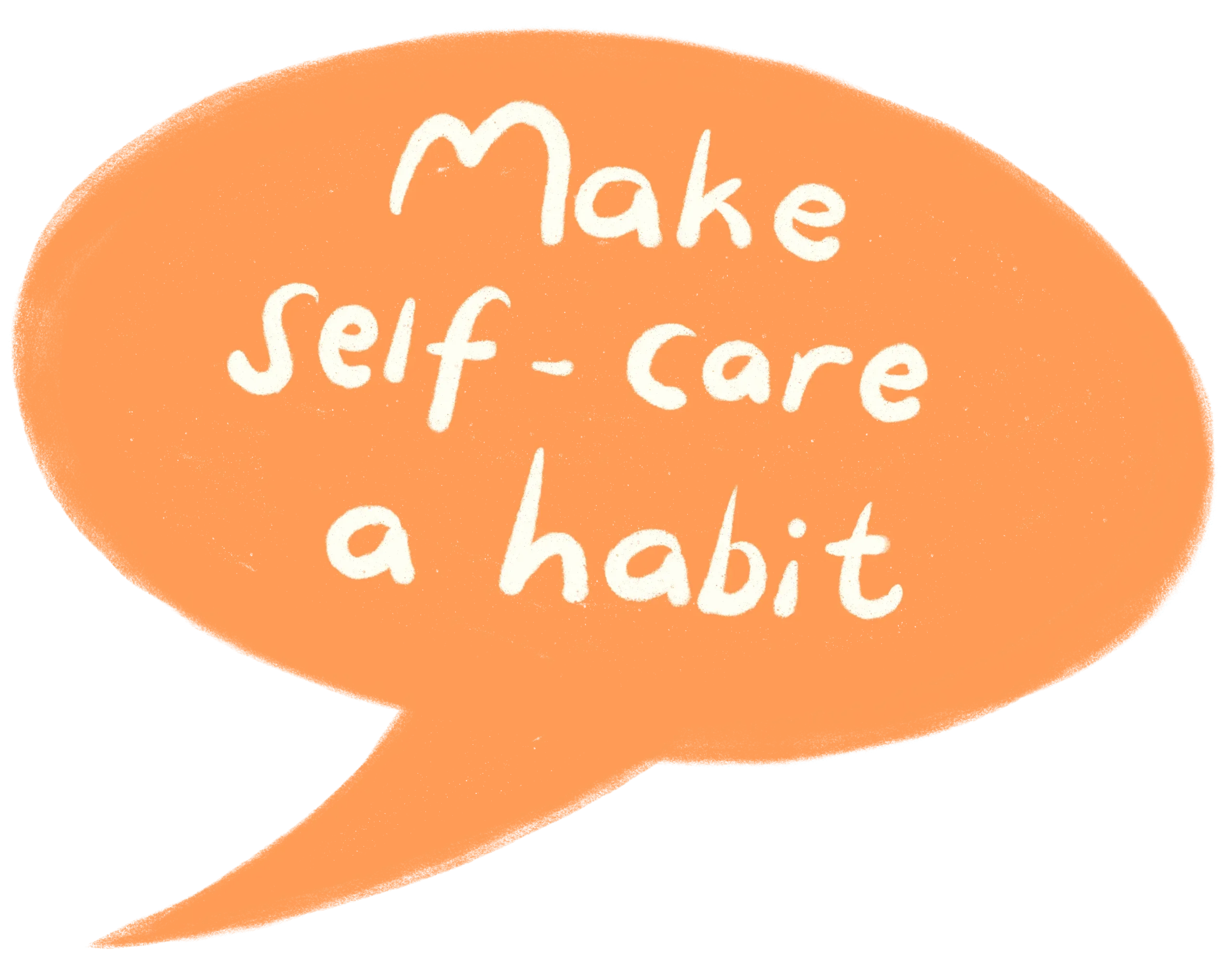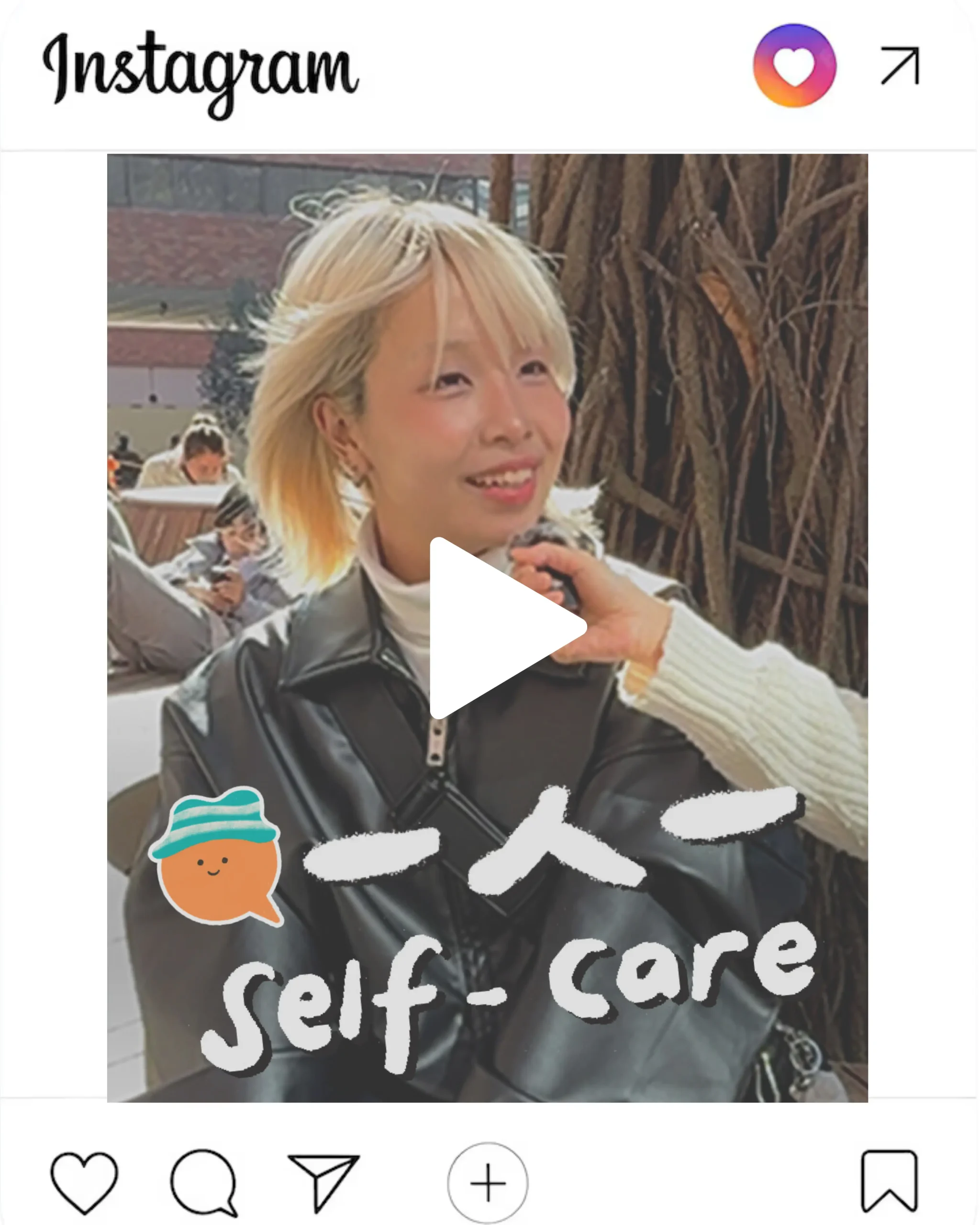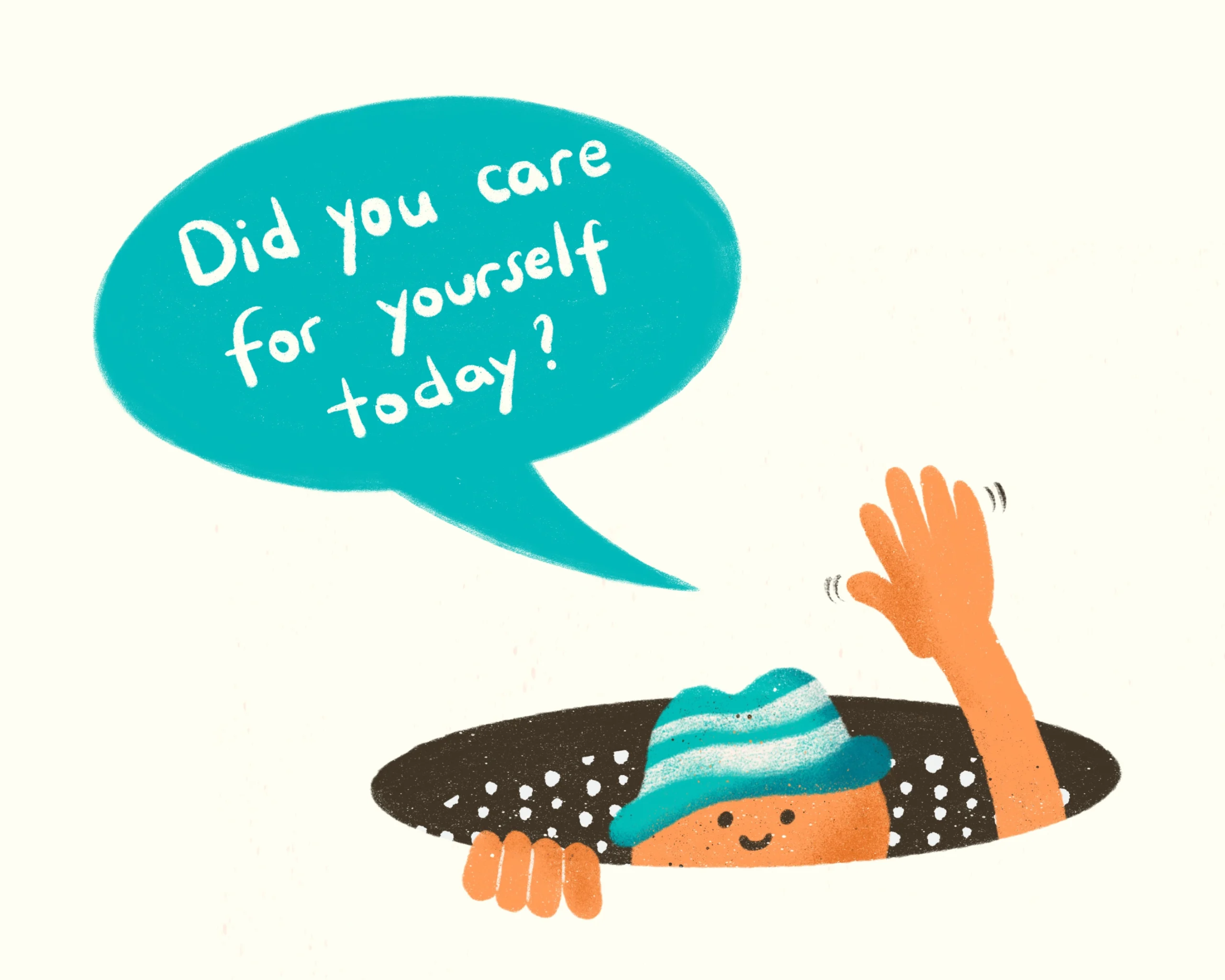As mentioned in the pervious article, when we encounter things that are truly worth being grateful for, it is important for us to remember them, because they are not guaranteed. However, practicing gratitude is not always easy, since we may face various disappointments both big and small—in reality, it may not be possible to always maintain a grateful heart. Yet, we can learn how not to let these disappointments hinder our ability to appreciate the other beautiful aspects of life. Below, I will share different ways to practice gratitude, hoping it can inspire you.
One Person One Self-care: Write Down Three Things You Appreciate About Yourself
In the video series "One Person One Self-care" a PolyU student shared that she writes a daily diary entry listing three things she appreciates about herself. She also recommended this method to a roommate who had struggled with depression.
"Each time I write in my diary, I jot down three things I appreciate about myself—like something that put me in a good mood today, or something I liked about myself today; even very minor things feel more precious because I’ve written them down.”
Writing it down helps us remember. The student mentioned that keeping a diary leaves a record just for herself, making it feel safe. Spending just a little time to note down daily moments of gratitude is already a wonderful self-care habit.
Song Hye-kyo Overcame Adversity Through Gratitude Journaling
 (Photo credit: Instagram/ @youquizontheblock)
(Photo credit: Instagram/ @youquizontheblock)
Korean artist Song Hye-kyo also developed the habit of writing gratitude journals. In an interview, she shared that after her divorce six years ago, she didn’t know how to love herself. A senior actor told her, "Hye-kyo, when you wake up, write about how you want to spend your day, what thoughts and feelings you’re carrying. Before bed, write down ten things you’re grateful for today." At first she found this practice difficult, so she sought more advice. The senior told her, "There’s so much to be grateful for: the beautiful weather, a smooth filming day, and most importantly, you must know to put yourself first, love yourself, and then you can give even more love to people around you!" Later, as she paid more attention to the small things in life, gratitude became easier, and she’s kept up this habit for five years, helping her through tough times.
Practice Method 1: Write a Gratitude Journal
A gratitude journal is a practice that promotes mental well-being by recording things to be grateful for each day. A meta-analysis reviewed 32 gratitude intervention experiments with 395 to 1,755 participants. Most studies asked participants to write a gratitude journal one to three times a week, listing three to five things they were grateful for each time, over periods ranging from two to ten weeks. The findings showed that writing a gratitude journal can significantly enhance overall happiness and has a positive effect on psychological well-being. However, another meta-analysis indicates that although gratitude practices can help to reduce depression and anxiety, the effect is relatively modest, and such practices cannot replace psychotherapy.
A gratitude journal isn't about word count but about being specific and focusing on feelings of happiness as you write. This helps us notice the good around us and reminds us that even when facing challenges, there are still things to be grateful for. Positive psychology researchers Emmons and McCullough were the first to study gratitude: they randomly assigned 192 undergraduates into three groups—one recorded things they were grateful for, another noted their worries, and a third group wrote down ordinary events. After ten weeks, those who recorded gratitude showed significantly greater life satisfaction. They asked participants to write five gratitude items three times a week. You’re encouraged to think of the moments your feel grateful — no matter big or small. You can also write your gratitude journal on the JC TourHeart+ platform, making gratitude a part of your daily life.

Today, I am grateful for these five things:
1 ________________________________________
2 ________________________________________
3 ________________________________________
4 ________________________________________
5 ________________________________________

Gratitude is an attitude towards life; it is not something that only those with religious beliefs can practice—it is something everyone can embody. Cultivating an attitude of gratitude doesn’t mean we should feel thankful for everything during difficult times. Instead, it’s about learning how not to let hardships block us from appreciating the other beautiful aspects of life. We all have difficult days—me also. However, I have found that even in hardship, there are still people around me who love and care for me, and even those who believe in me more than I believe in myself. These are not guaranteed, and for that, I am truly grateful.
When gratitude becomes part of our daily routine, recalling past blessings through sincere gratitude journal entries can accompany us through rough times. As for what we should be grateful for, the things that touch each person can vary. It’s important to be attentive and notice the subtle details in life. The feeling of happiness is something to be cultivated, much like saving money in a piggy bank; little by little, you begin to realize that the power of gratitude can be substantial.
If you haven't felt moved to write anything down yet, that's perfectly fine—don't force it. But when you do encounter those little moments of joy worth being grateful for, I encourage you to jot them down. I believe that one day, when you revisit your gratitude journal, you will appreciate that you recorded these small but precious moments. They will be enough to evoke fond memories and remind you of the many reasons to be grateful, reinforcing your belief that there are always precious little moments waiting to be discovered. Happiness is always around us; it depends on whether we choose to savor life with an attitude of gratitude.
Practice Method 2: Write a Thank-You Letter

Is there someone in your life you’ve always wanted to thank? When you think of this person, what do you wish you could say? Meta-analyses show that expressing gratitude directly—such as writing a gratitude letter or saying thanks face-to-face—has the most significant effect on boosting happiness.

Do you still remember in the previous article I asked whether you have ever bumped into a friend in MTR? If you have, do you think it was a coincidence or a miracle? I still choose to believe it's not random and I will not take it for granted. I am truly grateful for that experience of running into my friend on the subway; when we parted, we took a photo together to record this precious moment. I sent that photo to my friend via WhatsApp, which restarted our conversation and made me cherish every encounter even more, knowing that it's never something to be taken for granted. I hope that we don't need to wait for a miracle to happen one day, because we can also create miracles by ourselves. Let's think: Who is the person you are grateful for that comes to mind? If you're not used to writing thank-you letters or expressing gratitude face-to-face, you can also try sending him/her a message to tell them about your feelings of gratitude!
This article has explored the power of gratitude and introduced various ways to practice it. If you’re interested in learning more, check out JC TourHeart+ "Daily Self-Care —Notice the Subtle Beauty in Life" which includes the "10 Fingers Gratitude Practice". May we all discover the people, events, and things in life worth being grateful for. Finally, I am truly grateful that you read this far—see you next time!

References:
Cregg, D. R., & Cheavens, J. S. (2021). Gratitude interventions: Effective self-help? A meta-analysis of the impact on symptoms of depression and anxiety. Journal of Happiness Studies: An Interdisciplinary Forum on Subjective Well-Being, 22(1), 413–445. https://doi.org/10.1007/s10902-020-00236-6
Davis, D. E., Choe, E., Meyers, J., Wade, N., Varjas, K., Gifford, A., Quinn, A., Hook, J. N., Van Tongeren, D. R., Griffin, B. J., & Worthington, E. L. (2016). Thankful for the little things: A meta-analysis of gratitude interventions. Journal of Counseling Psychology, 63(1), 20–31. https://doi.org/10.1037/cou0000107
Emmons, R. A., & McCullough, M. E. (2003). Counting blessings versus burdens: An experimental investigation of gratitude and subjective well-being in daily life. Journal of Personality and Social Psychology, 84(2), 377–389. https://doi.org/10.1037/0022-3514.84.2.377





